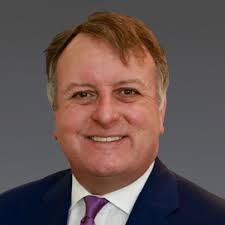Featured Expert Contributor—Life Sciences and Medtech Regulation



Matt Wetzel is a partner in the Washington, DC office of Goodwin Procter LLP and serves as the WLF Legal Pulse’s Featured Expert Contributor, Life Sciences and Medtech Regulation. Kirk Ogrosky is a partner in the firm’s Washington, DC office, and Annie Railton is a partner in the firm’s New York, NY office.
***
A recent Advisory Opinion (22-07) from the U.S. Department of Health & Human Services Office of Inspector General (OIG) offers insight on a longstanding issue facing the medical technology industry: namely, the Federal Anti-Kickback Statute’s application to physician-owned entities that distribute medical devices.
OIG—charged with interpreting the Anti-Kickback Statute—has long expressed concerns with certain physician-owned entities in the health care supply chain, and in particular physician-owned distributors of medical products, or “PODs.” For well over a decade, OIG, the Centers for Medicare and Medicaid Services (CMS), and even the Senate Finance Committee have addressed the potential ill effects of PODs. One of the more important statements from the government is OIG’s 2013 Special Fraud Alert outlining its view of the suspect characteristics of PODs.
A classic, problematic POD relationship looks like this:
Ordinarily, a manufacturer produces a medical device and sells that device to a hospital for use in surgery performed at the hospital. The hospital’s surgeons either decide which device to use in a given procedure—or at least have influence over the decision as to the spectrum of devices that the hospital purchases and makes available for use. As a result, these physicians also bear influence over the relationship between the manufacturer and the hospital.
In some instances, these surgeons might form a distributor entity that purchases medical devices from the manufacturer and then sells them to the hospital, thereby stepping in between the manufacturer and the hospital as an intermediary. In some instances, the POD might even produce its own device, usually through outsourcing to a private label manufacturer.
The physician owners of the POD are compensated by the POD (for example, a physician might receive a sales commission for each medical device sold to the hospital). They may also receive profit distributions, share in revenues, or receive other payments. These payments, which are distributed to reward or to induce business generated by the physician owner for the POD, would implicate the Anti-Kickback Statute.
But, because the physician owners are also the implanting surgeons at the hospital—in addition to potentially being the decision-maker at the hospital as to which device to purchase—the physician is also compensated for the procedure (either by the hospital as part of his/her employment arrangement or by a third-party payer, like Medicare, for services rendered). In other words, the physician owner is both the seller and the purchaser in one transaction; and the physician owner is also compensated by the hospital and/or by a payor for his/her role in performing the implant.
When Is a POD Arrangement Suspect?
In its 2013 alert, OIG concluded that these types of relationships pose significant risk under the Anti-Kickback Statute. Noting that “the opportunity for a referring physician to earn a profit, including through an investment in an entity for which he or she generates business, could constitute illegal remuneration,” OIG offers nine attributes of PODs that are considered problematic under the Anti-Kickback Statute:
- The size of the investment offered to each physician varies based on the number of devices used by the physician investor/owner.
- Profit distributions to owners/investors are not made in proportion to ownership interest; or, alternatively, physician owners/investors pay different prices for their ownership interests based on the expected or actual volume of devices used by the physician.
- Physician owners/investors condition referrals to a hospital on the hospital’s purchase of the POD’s devices, which may be seen as coercion, implying that physician owners/investors will perform surgeries or refer patients elsewhere if the hospital does not purchase devices from the POD.
- Physician owners/investors are pressured to arrange for the hospital to purchase the devices sold by the POD or, conversely, are threatened with negative repercussions (e.g., decreased POD distributions to the physician, required divestiture from POD ownership).
- The POD retains the right to repurchase a physician owner’s interest if the physician fails to arrange for the hospital to purchase the POD’s devices.
- The POD is a shell entity that does not conduct appropriate product evaluations, maintain or manage sufficient inventory in its own facility, or employ or otherwise contract with personnel necessary for operations.
- The POD does not maintain continuous oversight of all distribution functions.
- When a hospital requires physicians to disclose conflicts of interest, the POD’s physician owners fail to inform the hospital or conceal their ownership interest in the POD.
- A POD exclusively serves its physician owners’ patient base (as opposed to serving multiple hospitals or selling to hospitals based on referrals from non-owners).
Simply put, PODs pose an increased risk under the Anti-Kickback Statute, can be laden with potential conflicts of interest, may allow physicians to “double-dip” into the healthcare payment stream, and can create misaligned incentives that have resulted in patient injury and death.
There have been seen several recent examples of the government enforcing the Anti-Kickback Statute as well as the Federal False Claims Act against physicians, PODs, manufacturers that sell to PODs, and hospitals that engage in sales relationships with PODs. As noted above, the U.S. Senate has investigated and reported on perceived ill effects of PODs in past years. And CMS has required PODs to self-identify under the U.S. Physician Payments Act’s Open Payments Program and refused to offer safe harbor protection to PODs in connection with value-based and care coordination arrangements.
In other words, for PODs, the heat is on and has been on for some time…
Advisory Opinion 22-07’s Physician-Owned Entity
Enter OIG’s recent Advisory Opinion 22-07, issued on April 20, 2022, which analyzes the unique health care fraud issues physician ownership of medical device companies can pose and concludes, at least with respect to the very specific physician-owned entity at issue, that physician-owned entities can structure their businesses to minimize the Anti-Kickback Statute risk.
The arrangement that OIG analyzes in Opinion 22-07 is unique. In this arrangement, three orthopedic surgeons (a father, his daughter, and her husband) either directly or through trusts own a company (the Company) that develops and sells an upper extremity orthopedic surgical device invented by the father. The Company “employs dozens of individuals and is responsible for the full range of operations of a medical device company, including product design, development and testing of products, quality control, the submission of regulatory filings” with FDA, as well as marketing and inventory management. The father holds a majority interest in the Company, which he was granted in exchange for assigning ownership of the substantial IP portfolio to the Company. Non-health care providers hold the rest of the Company’s ownership interests.
According to the opinion, the Company’s sales have expanded significantly around the globe over time, and orders from the physician owners generate only a small percentage of the Company’s revenues (less than 1%). According to the Company, it does not distribute profits to the physician owners, and it will make any future distributions in “direct proportion to each owner’s investment interest in the Company.” Further, any distributions to the physician owners or the related trusts will be reduced by the amount of revenue generated from the physician owners’ product orders. The Company does not have the right to repurchase the ownership interests or require any divestiture of ownership to the extent a physician ceases ordering from the Company.
The Company indicated that it does not condition referrals to hospitals on the purchase of Company products, noting specifically OIG’s previous concerns about coercive behavior with respect to hospital purchases (i.e., no treats to perform surgeries elsewhere if the hospital does not purchase the Company’s products nor requiring a hospital to enter an exclusive or minimum purchase agreement). All product selection, according to the Company, is based on patient need.
With respect to transparency, the Company indicated that physician owners disclose to patients the ownership interests in writing prior to performing surgery, in addition to providing the names of alternative medical device companies and an opportunity to use these alternative devices. The physician owners notify hospitals where they perform services about their ownership interest in the Company. The Company also makes clear that it complies with CMS’s Open Payments program’s disclosure requirements for physician ownership interests (i.e. the “Sunshine Act”).
OIG’s Conclusion
Based on these facts, OIG concludes that it would not subject the Company to administrative sanctions under the Anti-Kickback Statute, given the safeguards put in place. Specifically, OIG draws the following six conclusions:
- The Company does not exhibit the suspect characteristics that the agency highlighted in its 2013 Special Fraud Alert. For example, the Company sells its products broadly; employs staff; and is responsible for product design, development, quality control, regulatory filings, marketing, and inventory management. In other words, OIG appears to conclude that, despite the physician ownership, the entity is a legitimate, genuine medical device manufacturer that operates itself with the full spectrum of functionality that one would expect of a legitimate, genuine medical device manufacturer.
- The technology underlying the Company stems from the father’s own ingenuity and invention. In other words, this is not the case of a company that is simply licensing another entity’s technology, repackaging it, and selling it.
- Profit distributions and ownership interests are designed to minimize the risk of inappropriate product selection, corrupting medical decision-making, and unfair competition. Further, the Company “meaningfully dilutes the financial incentives the Physicians may have to order the Company’s products by reducing any distributions” by the amount of revenue generated by the physician owners’ orders of the product. And any distributions intended to be made will be done so in proportion to ownership interests – not sales or revenue generation. OIG also cites to the minimal revenue generated from the physician owners (less than 1%).
- The ownership interests are not contingent on any physician owners generating business for the Company, and there is no requirement to generate business in exchange for maintaining ownership interests.
- The physician owners have indicated that there is minimal attempt to influence hospitals to purchase the Company’s products, referrals to hospitals are not conditioned on use of the product, and there are no minimum purchase requirements.
- Finally, the Company is transparent about the ownership interests, including with patients who are given an option to use an alternative device, with hospitals, and via the Open Payments program. In other words, there is no effort to obfuscate the owners’ interests, and, in fact, the Company’s policy requires full transparency. While transparency alone cannot cure a conflict of interest, it does permit potential buyers (i.e., the hospitals) as well as potential beneficiaries (i.e., the patients) to make informed care decisions.
These safeguards, OIG concludes, are sufficient to minimize the risk of harm to the government or to Medicare beneficiaries. Put another way, these safeguards would limit any potential streams of inappropriate income and minimize conflicts of interest that might interfere with hospital purchasing and patient care decisions.
While Advisory Opinion 22-07 certainly does not spell the end of PODs, it does draw a distinction between a legitimate, privately held physician-owned manufacturer and an inappropriate POD structure. Only the requestor of Advisory Opinion 22-07 can rely on its conclusions, but the opinion does provide at least some signal from the government as to the types of appropriate controls around physician-owned entities in the medtech supply chain that may mitigate Anti-Kickback Statute risks.
